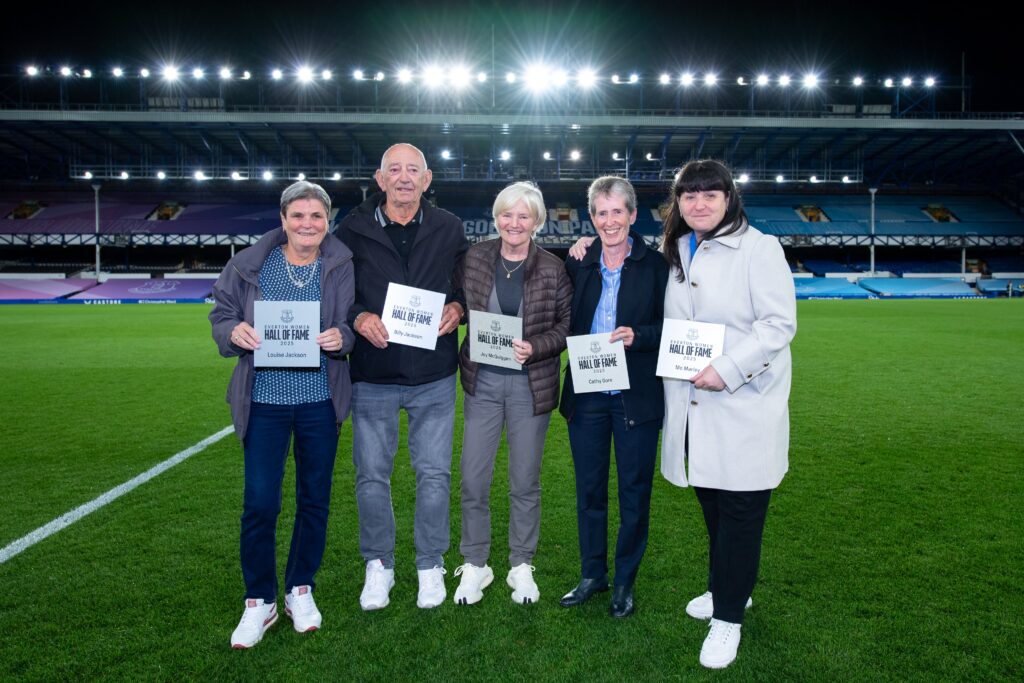
Left to right; Louise Thomas, Billy Jackson, Joy McQuiggan, Cathy Gore and Mo Marley, (photo: Everton FC)
Everton FC Heritage Society – and specifically, the ‘women’s football research group’ comprising; Alison Jones, Sarah Deboe, Bradley Cates and Rob Sawyer, played a key role in the introduction of the Hall of Fame, provided in depth history of Everton Ladies and Everton Women, and were part of the election process. Everton FC Heritage Society are immensely pleased to see the inauguration take place and proud of the hard work put in by its members in the role played. Congratulations to our researchers, and of course, to all the inductees on their well deserved awards!
The first five inductees of Everton Women’s ‘Hall of Fame’ were presented with a commemorative plaque by Everton Women CEO Hannah Forshaw at half-time during the Blues’ clash with London City Lionesses at Goodison Park.
Announced to coincide with Everton Women’s historic permanent move into Goodison Park, the Hall of Fame celebrates and honours the players, coaches and pioneers who have shaped the history of the women’s team and game.
Selected by a panel made up of former coaches and players, Everton supporters’ groups, journalists, the Everton Heritage Society and Club officials – the historic first five are: Mo Marley, Joy McQuiggan, Cathy Gore, Billy Jackson and Louise Thomas.
The five have all exerted significant influence on both Everton Women and women’s football generally and they have all been immortalised at Goodison Park, with their images displayed prominently at the stadium.
………………………………………………………………
Rob Sawyer of the Everton FC Heritage Society played a key roll in the inauguration of the Hall of Fame and was part of the selection process. Rob was present at Goodison Park for the historic occasion and he describes here the background to the Hall of Fame and the events that day;
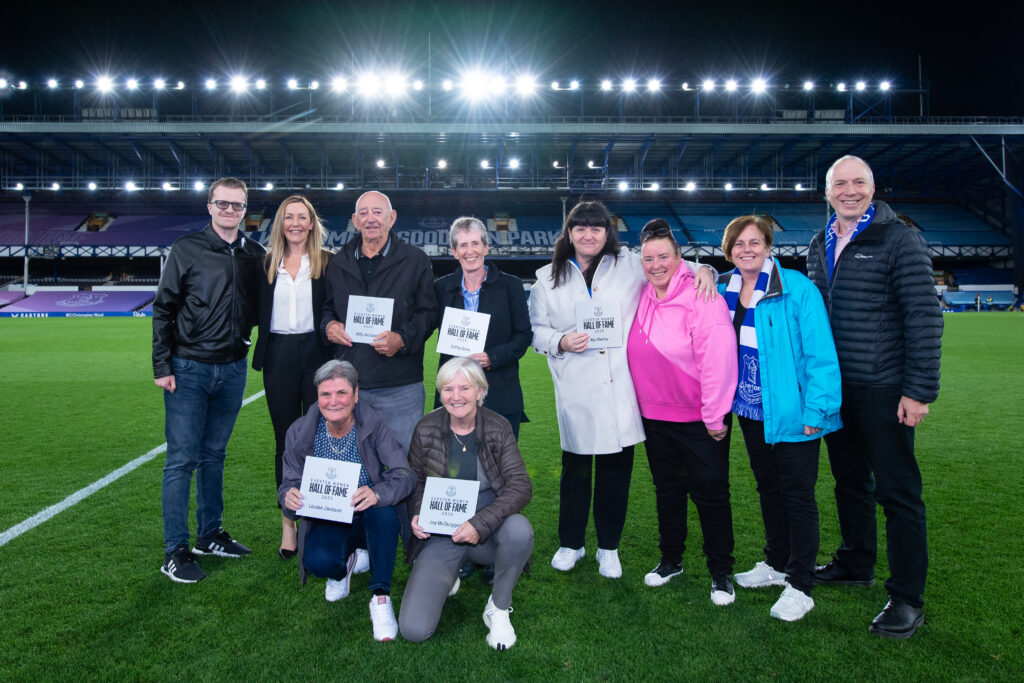
A Night to Remember for the first Inductees into Everton Women’s Hall of Fame
by Rob Sawyer
At the match between Everton Women and London City Lionesses at Goodison Park on 19 September there was very public recognition of some key people in the 42-year journey that has taken Everton Women, in its various guises, from five-a-side matches in a Birkenhead sports hall to calling one of Britain’s great and historic stadiums its home.
At half-time, in front of the Sky Sports cameras, Cathy Gore, Joy McQuiggan, Louise Thomas, Billy Jackson and Mo Marley were introduced onto the hallowed turf by matchday announcer Giulia Bould. There, they were given commemorative plaques by CEO Hannah Forshaw as they became the first inductees in the recently launched Everton Women’s Hall of Fame. As special guests of the club for the match, they had been accommodated in the boardroom and directors’ box.
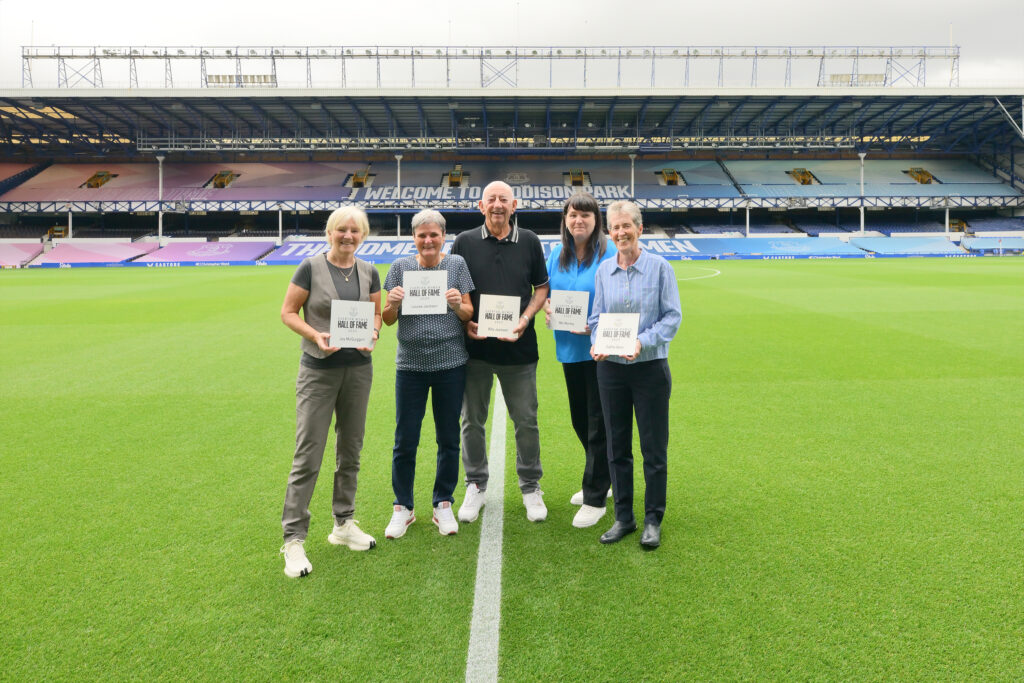
Left to right; Joy McQuiggan, Louise Thomas, Mo Marley, Billy Jackson and Cathy Gore (photo: Everton FC)
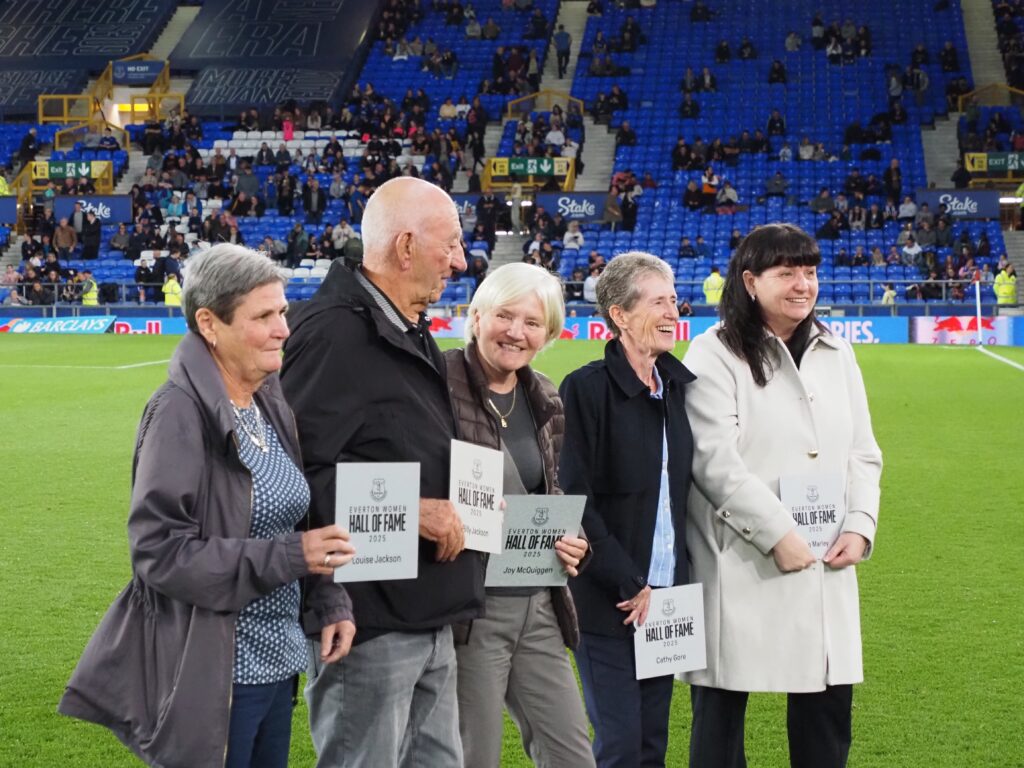
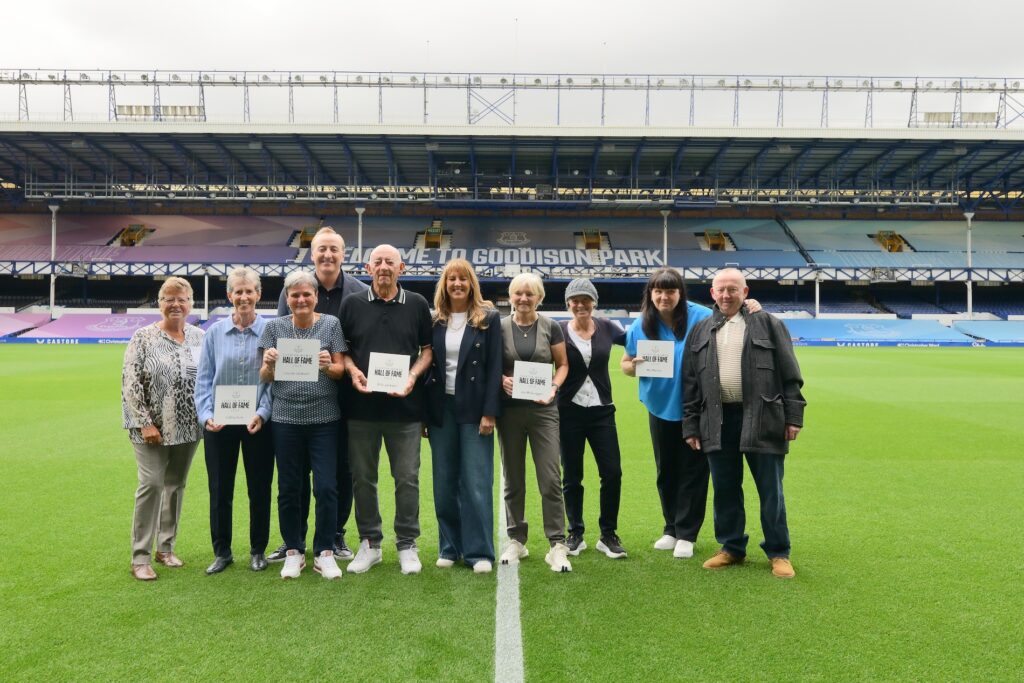
The Hall of Fame initiative arose from a proposal drawn up by Everton FC Heritage Society’s women’s football research group (Alison Jones, Sarah Deboe, Bradley Cates and Rob Sawyer) and presented to the club via the Society’s secretary and then Fan’s Advisory Board representative, Richie Gillham. The change in club ownership, the announcement of the women’s team’s move to Goodison Park and the enthusiasm of Head of Football Operations, Catherine Wright, have been important factors in the project progressing in recent months.
A selection panel was formed, consisting of representatives from the Heritage Society, the Everton Women Official Supporters’ Club and Everton FC plus former players and coaches and sports journalists. Its aim is to recognise the outstanding contributions made to what we now refer to as Everton Women, going back over four decades. The criteria for induction included leadership, innovation, exceptional performance and longevity. When tasked with identifying the first five inductees, the panel’s focus was on those whose influence was particularly felt in the first two decades of the team’s history, laying the foundations in the amateur status era for what was to follow. There will be further inductees announced in the years to come.
When asked for their reactions by the club’s media team to being the inaugural inductees, the five used words like ‘honoured’, ‘overwhelmed’, ‘emotional’ and, in Billy’s case, ‘gobsmacked’
To those with only a passing interest in the history of Everton’s women’s sides, Mo Marley may be the only familiar name, so here are some brief pen pics:
Billy Jackson
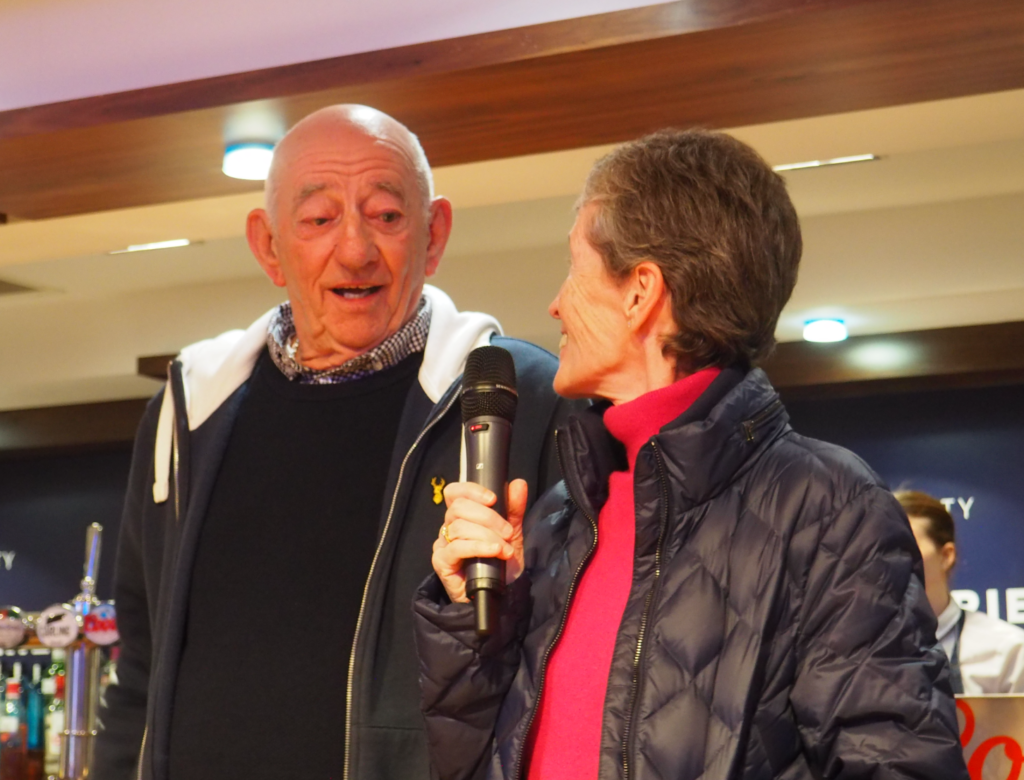
Now 82, Billy was an amateur youth player for his beloved Liverpool FC in the late 1950s. He was co-founder (with June Gordon) of what is now referred to as Everton Women. Back in 1983/84 the Dolphin 5-a-side team, which he oversaw (and featured his daughter, Michelle) pooled resources with members of a Bebington 11-a-side outfit (which had June Gordon and Jill Thomas amongst the members). Briefly known as Hoylake, by 1987/88 season, the club was playing at Cuemasters Spots and Social Club ground in Moreton under the Leasowe Pacific moniker (Pacific being a reference to the Pacific pub in Birkenhead which supported the club).
As manager, Billy drove the amateur team’s rise from dominating local and regional leagues to joining the national structure in 1992 – all the while having full-time employment as an HGV driver. Along the way they claimed the 1989 Women’s FA Cup in 1989, having fallen at the final hurdle a year earlier. In only the third full season operating as Everton Ladies, and based at College Road, Crosby, the club won its first and, to date, only national league title in 1997/98. Billy stepped away from management in the autumn of 1998 but his influence on the club can’t be overstated.
Louise Thomas
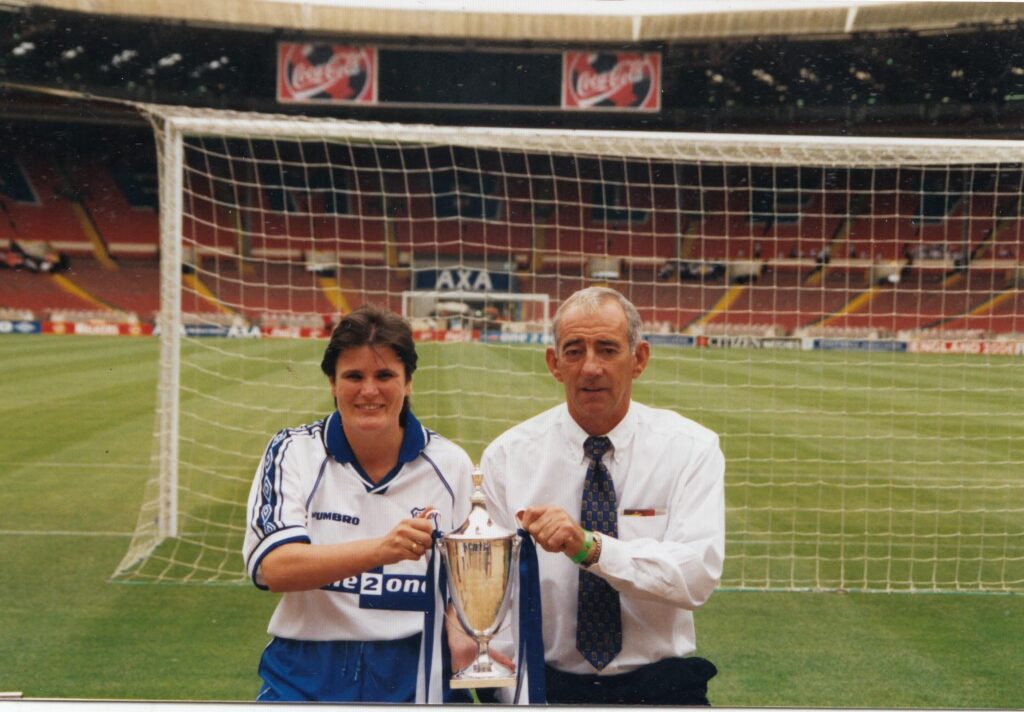
Louise is widely regarded as one of the greatest strikers in the history of the Everton women’s teams. The former Deeside Ladies number 10 was a superb all-round forward, adept at hold-up play, bursting through opposition back lines and snaffling up chances. She was also a dead-ball specialist, both scoring and creating chances for teammates. Capped by Wales, Louise was present throughout Leasowe’s rise and transition to Everton Ladies. She was one of the scorers in the 1989 Women’s FA Cup Final, capping an excellent display in tandem with strike partner Maria Harper (in all, she scored 54 goals that season). Being crowned a league champion in 1998 with Everton Ladies was made sweeter by being able to parade the trophy around Goodison Park, the home of her male footballing heroes. She retired from playing that same year. She is now married to Billy Jackson; romance having blossomed at Leasowe Pacific in the 1980s.
Cathy Gore
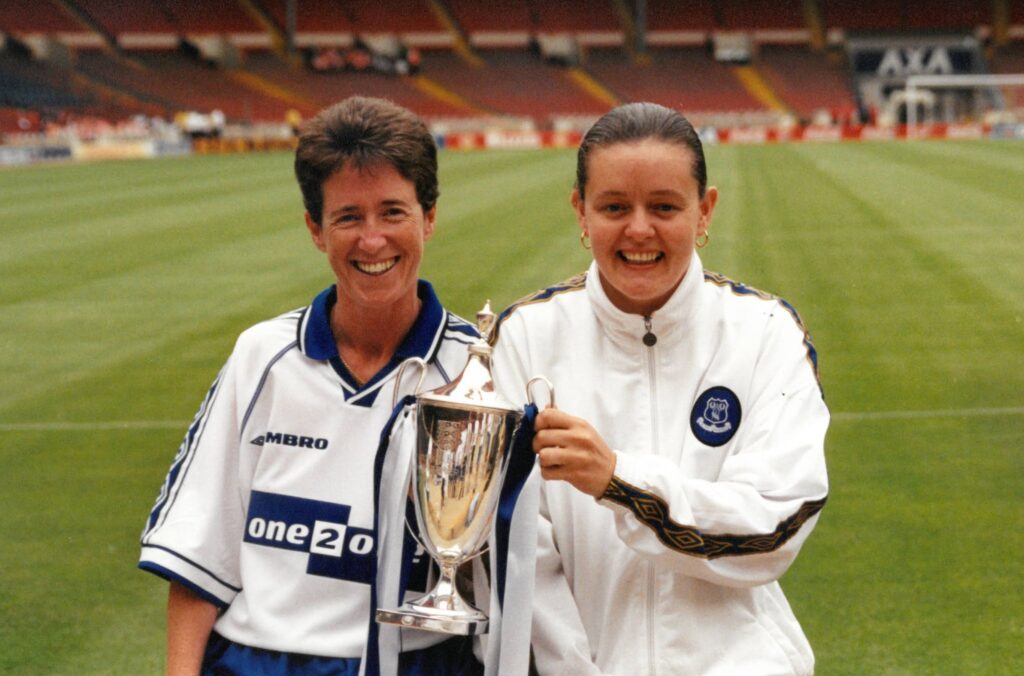
Signed by Leasowe from Kirkby Ladies in the mid-1980s, Cathy was likened by teammates and spectators to male Merseyside midfield counterparts Graeme Souness and Peter Reid. Described by manager Billy Jackson as the side’s ‘heel-biter’ in midfield, she was also very capable on the ball once possession was won.
A supporter of the Liverpool FC men’s team, she played in the 1989 women’s cup final just a week after being in the Leppings Lane Stand as the Hillsborough disaster unfolded below her. She, and clubmates Jill Salisbury and Dianne Coughlin who had been in Sheffield that fateful afternoon, discussed with Billy Jackson as to whether to go ahead with the final but felt that football, and life, should go on and they could make Merseyside proud on the pitch. They did just that.
In 1992 Cathy switched to Knowsley United (which became Liverpool Ladies) for two years before returning at the dawn of the Everton Ladies era. Playing into her 40s with Everton, the holding midfielder (AKA ‘Cathy Gore, Number Four’) rolled back the years in the title-winning 1997/98 campaign and was recognised by teammates as the player of the season. When Everton took on Arsenal in a short exhibition match at Wembley, just before the 1998 Charity Shield match, she was on target for the Blues. Cathy hung up her boots during the 1999/2000 campaign.
Joy McQuiggan
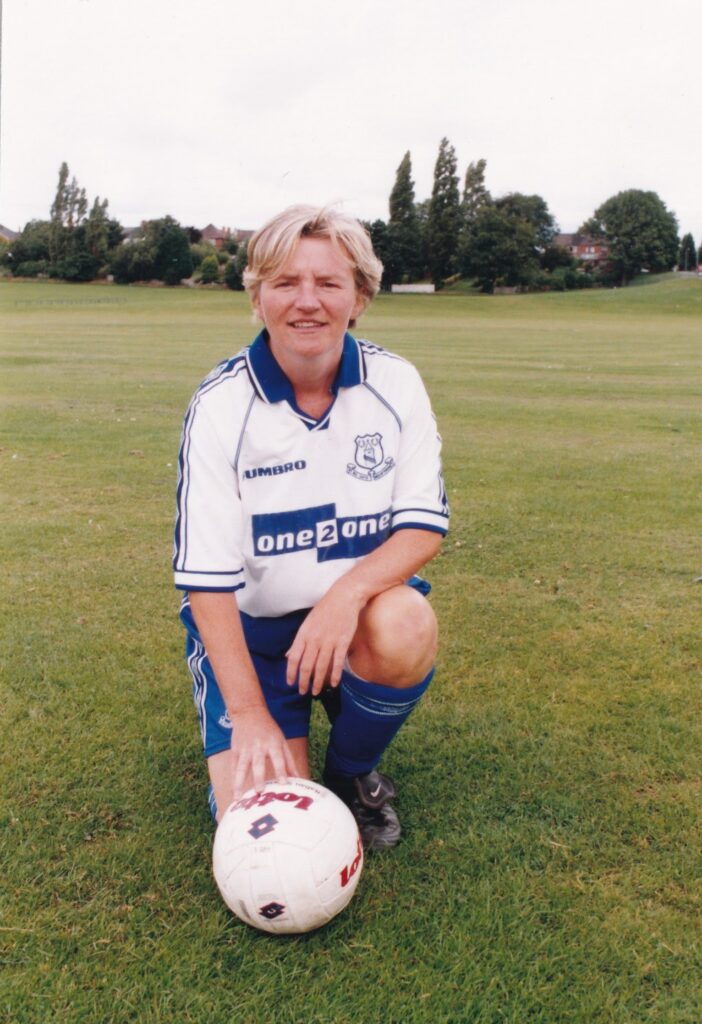
Kirkby-raised Joy started out as a left winger before finding her niche in left midfield and spending her final playing days in a more defensive role. Having grown up supporting Everton’s men’s team (her father, who died when she was a young child, had been a regular on Goodison Park’s terraces), she joined Leasowe in the mid-1980s and wrote her name into the history books when scoring the winning goal against the Friends of Fulham in the 1989 Women’s FA Cup Final at Old Trafford.
She was dubbed ‘Barry’ by teammates, the nickname being a nod to both Barry Sheen (as she’d use a small motorbike to get to training sessions) and Barry McGuigan (the Irish boxer with a similar name). In a reference to the latter, 1989 cup final match commentator Martin Tyler referred to her delivering the ‘knockout punch’ to their opponents when scoring Leasowe’s third goal.
After spells with Doncaster Belles and Liverpool Ladies, Joy returned to Everton, playing until she was 41, collecting a Women’s Premier League medal along the way. Recently, she made the journey from Lincolnshire, with her partner Louise (herself a former Everton player) just to be present at the first Everton Women’s home league match since they became the custodians of Goodison Park.
Mo Marley
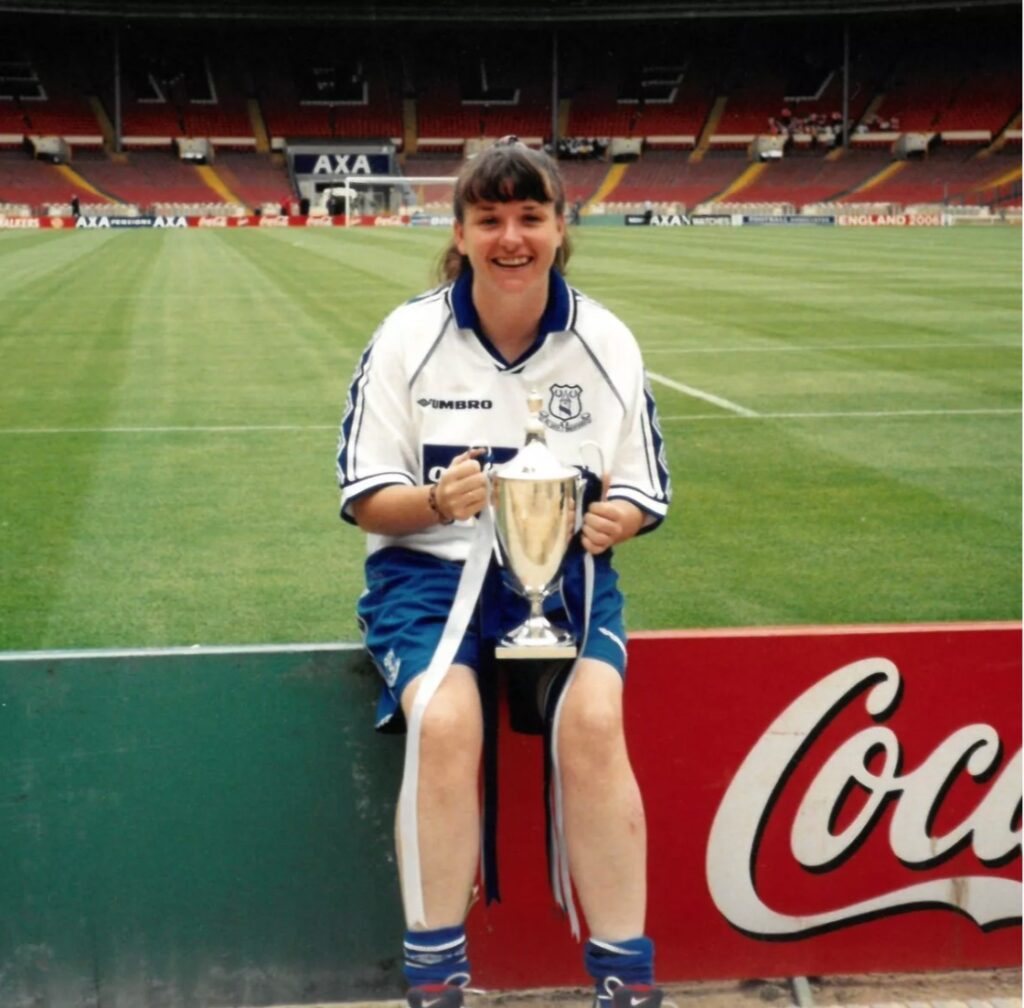
Mo has served the club she has supported since childhood with distinction, as a player, coach and manager. She signed for Leasowe Pacific in 1988, capping her first season there with a Women’s FA Cup winner’s medal. Dominant in the air at both ends of the pitch, the centre-back was a key component of the 1997/98 league title-winning side, becoming club captain soon afterwards. International recognition came quite late in her career, yet she still accumulated 41 England caps.
Having gained her coaching qualifications, and also worked as a community football development officer, in 2002 Mo took over from her husband Keith as Everton Ladies’ manager. Under her visionary and innovative stewardship, Everton consistently competed for the top honours, recruiting and developing players who would go on to become household names, including Jill Scott, Rachel Unitt, Rachel Brown-Finnis, Lucy Bronze and Fara Williams. On her watch, silverware arrived in the shape of the Premier League Cup (2008) and the Women’s FA Cup (2010) while they missed out narrowly to Arsenal in the league in 2009.
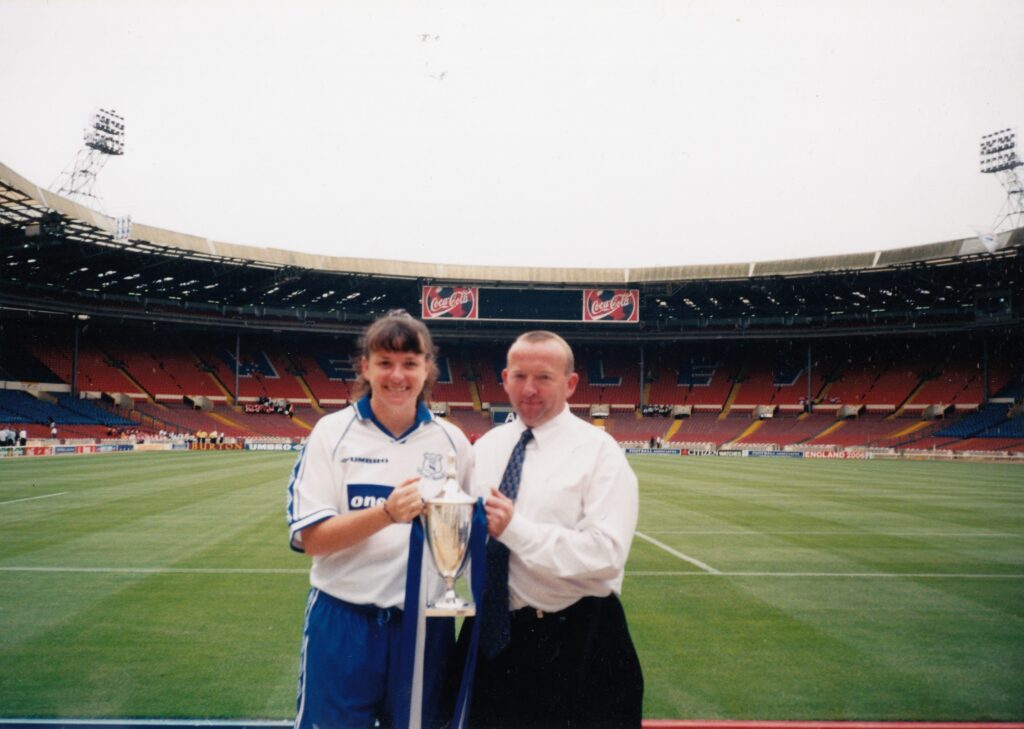
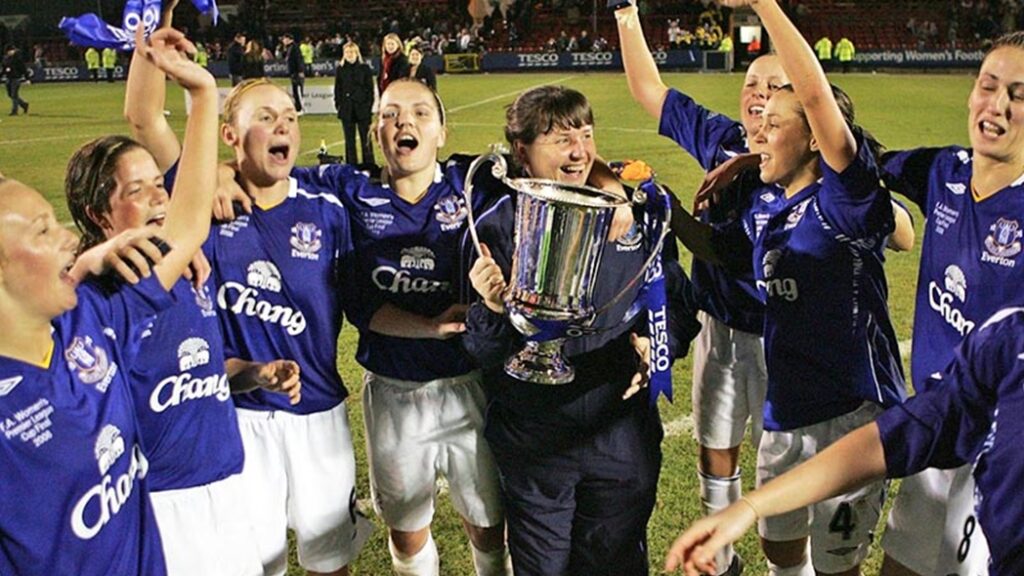
Mo stood down from the Everton hot seat in 2012 but continued a long and fruitful association with the England set-up. With Keith, she remains a regular attendee at Everton Women’s matches. In 2005, she was awarded an MBE for services to sport. One of Goodison’s Park’s hospitality lounges now carries her name, another has been relaunched the Leasowe Pacific Lounge.
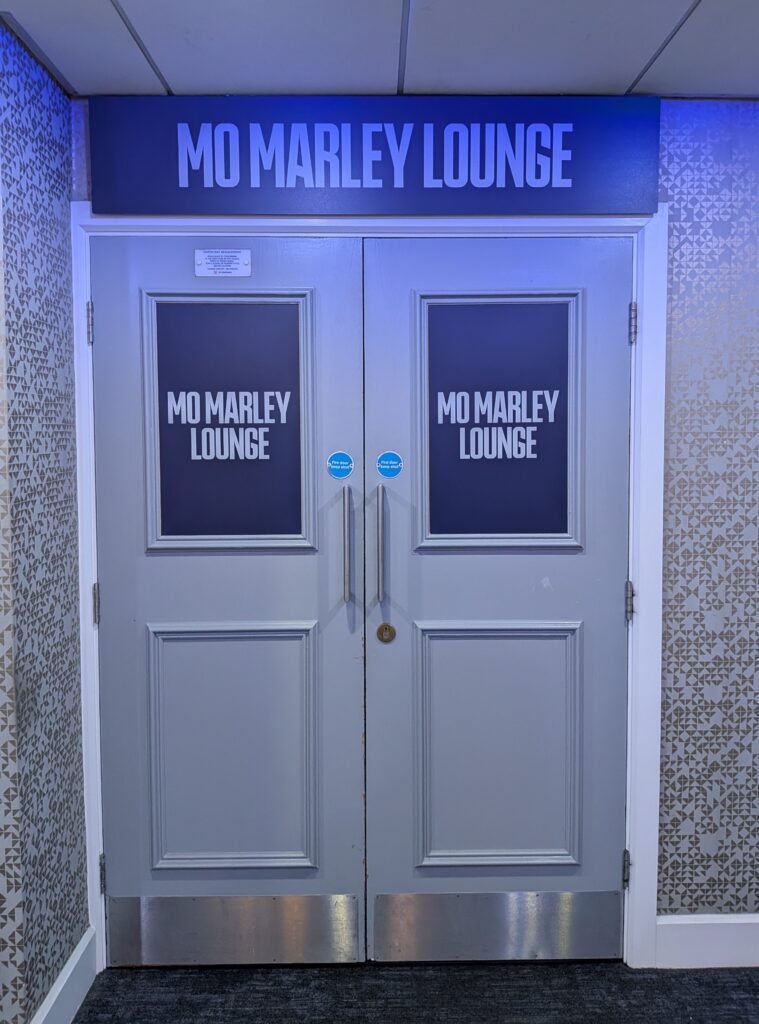
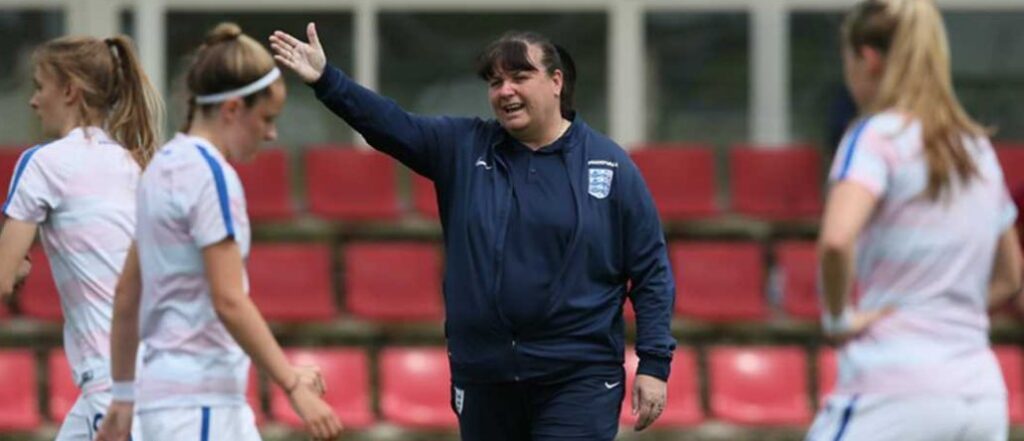
The pedigree of all our inductees goes back to the 1980s, and all are featured in this programme which includes Leasowe Pacific – see how many of our award winners you can spot!
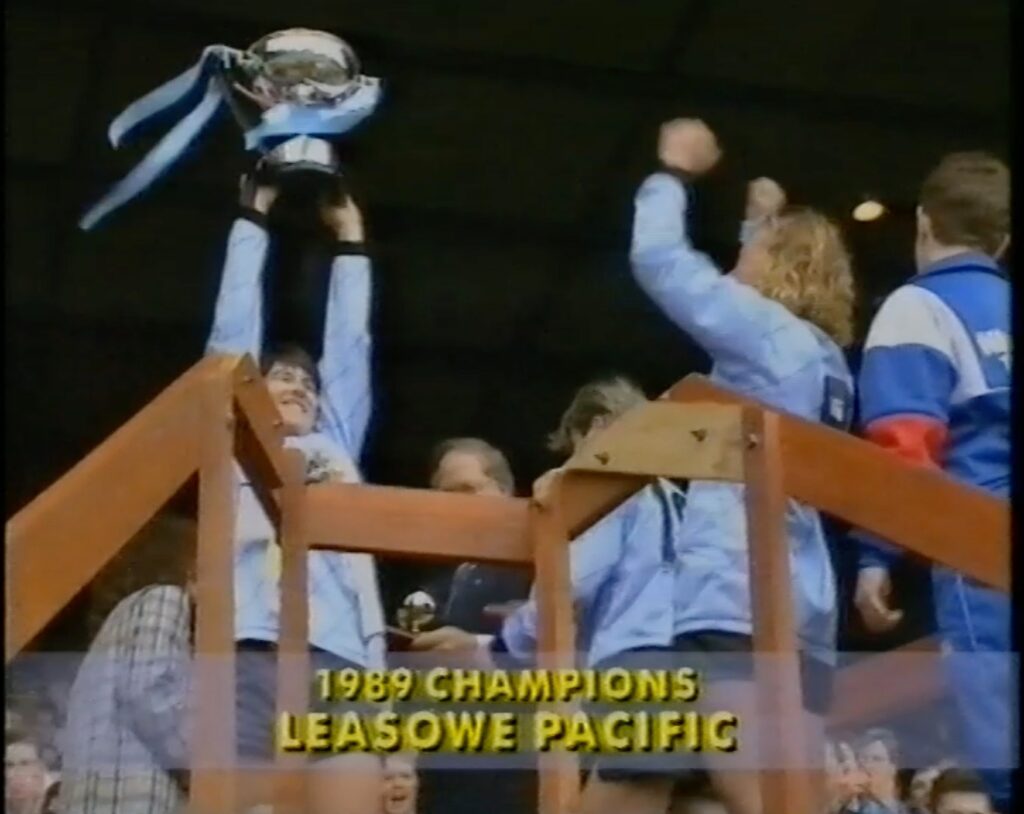
‘Women’s Football’ (1990)
A documentary made at the end of the 1980s about the history of the women’s game, but features rare footage of Dick Kerr’s Ladies versus St Helens Ladies at Goodison Park, Boxing Day 1920, (including the teams emerging from the Bullen’s Road changing rooms), plus 1989 cup winners Leasowe Pacific, the pioneering club that would eventually evolve into Everton Women who now call Goodison Park their home!
Acknowledgments
Photo credits include Everton FC, Rob Sawyer, Mo and Keith Marley, Louise and Billy Jackson, Jill Thomas
Everton Women match and appearance statistics and its previous guises visit the excellent and comprehensive pages of;
efcstatto.com curated by Bradley Cates of Everton FC Heritage Society
.
Gallery
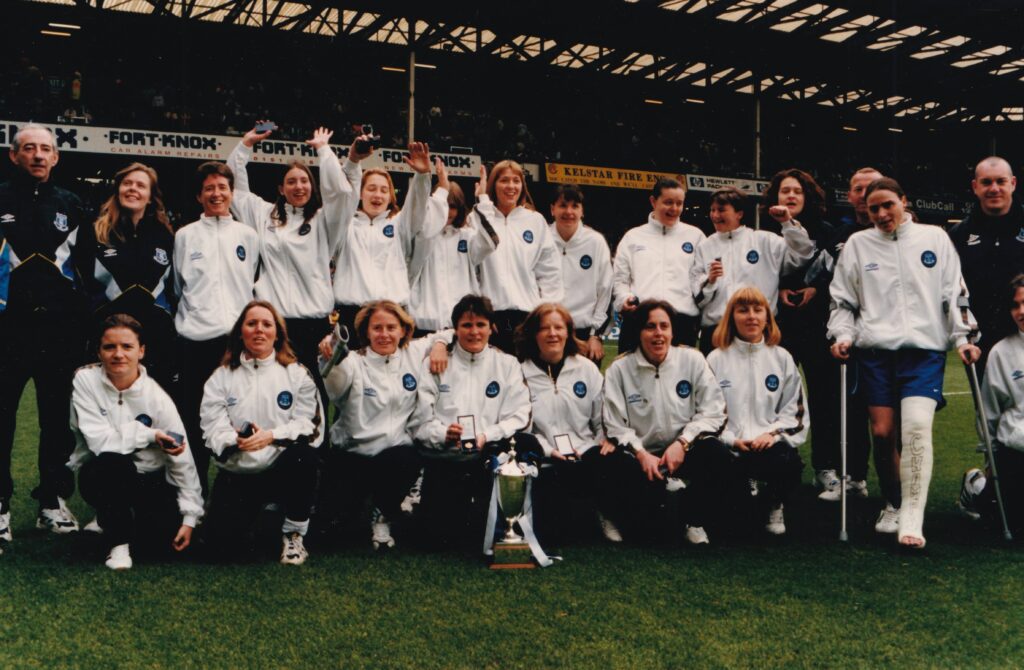
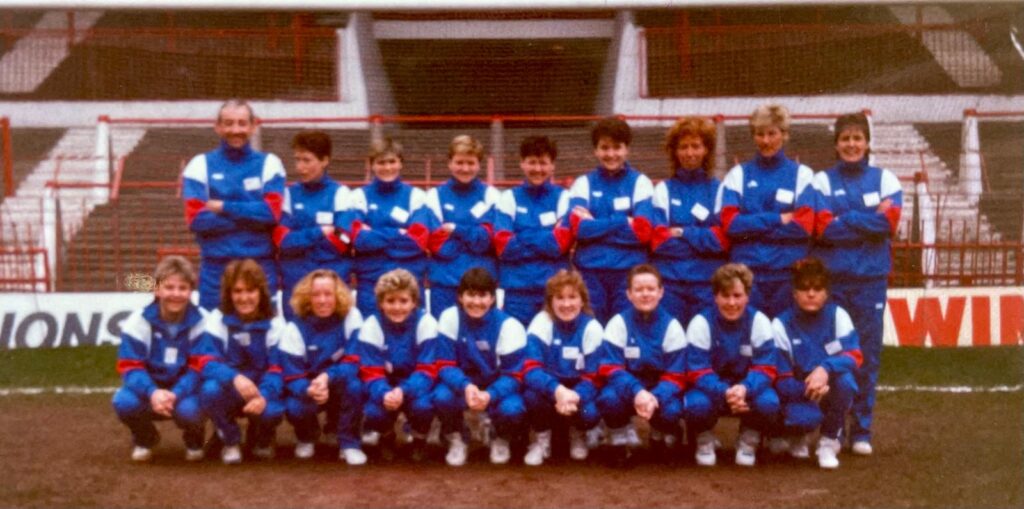
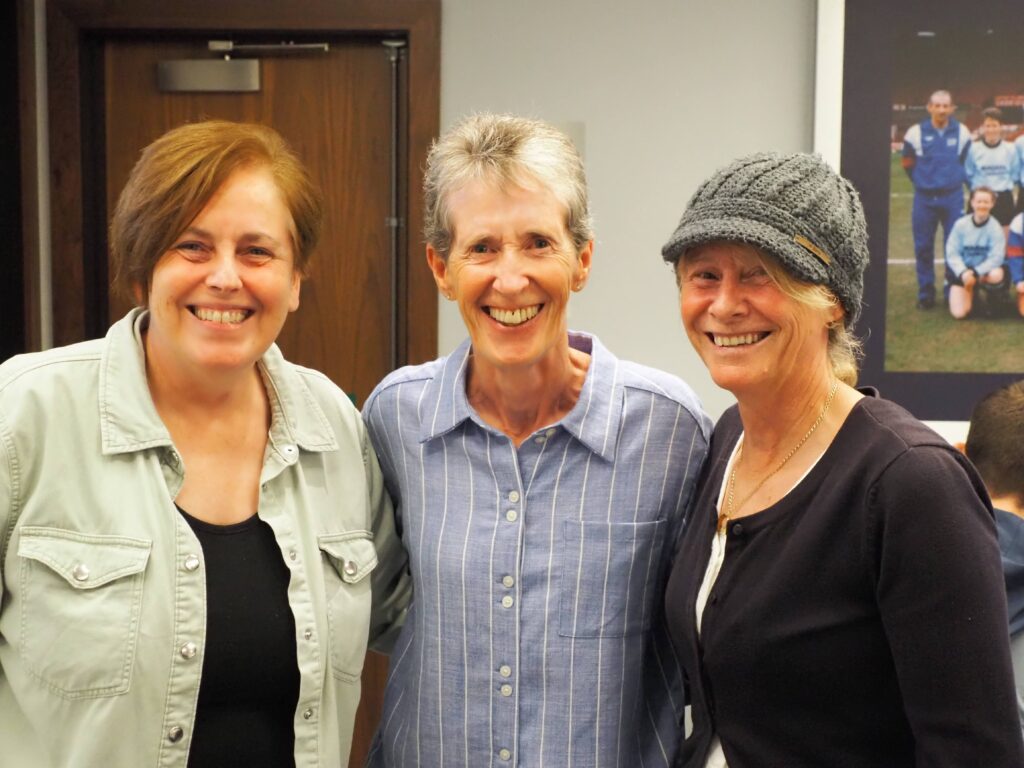
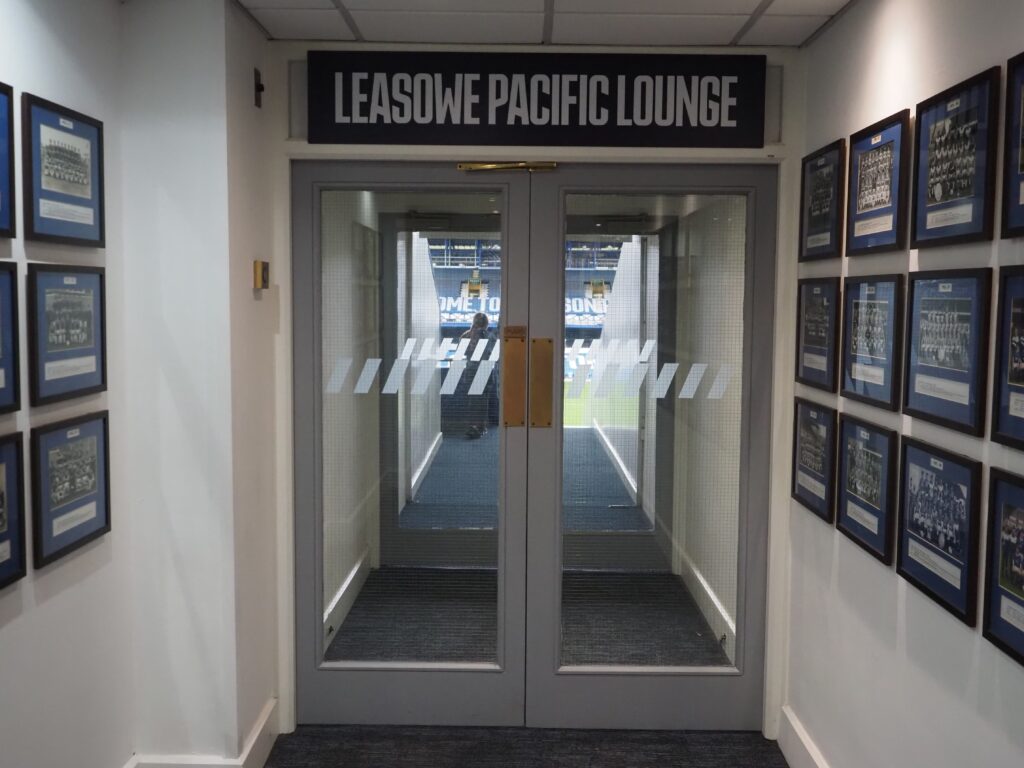
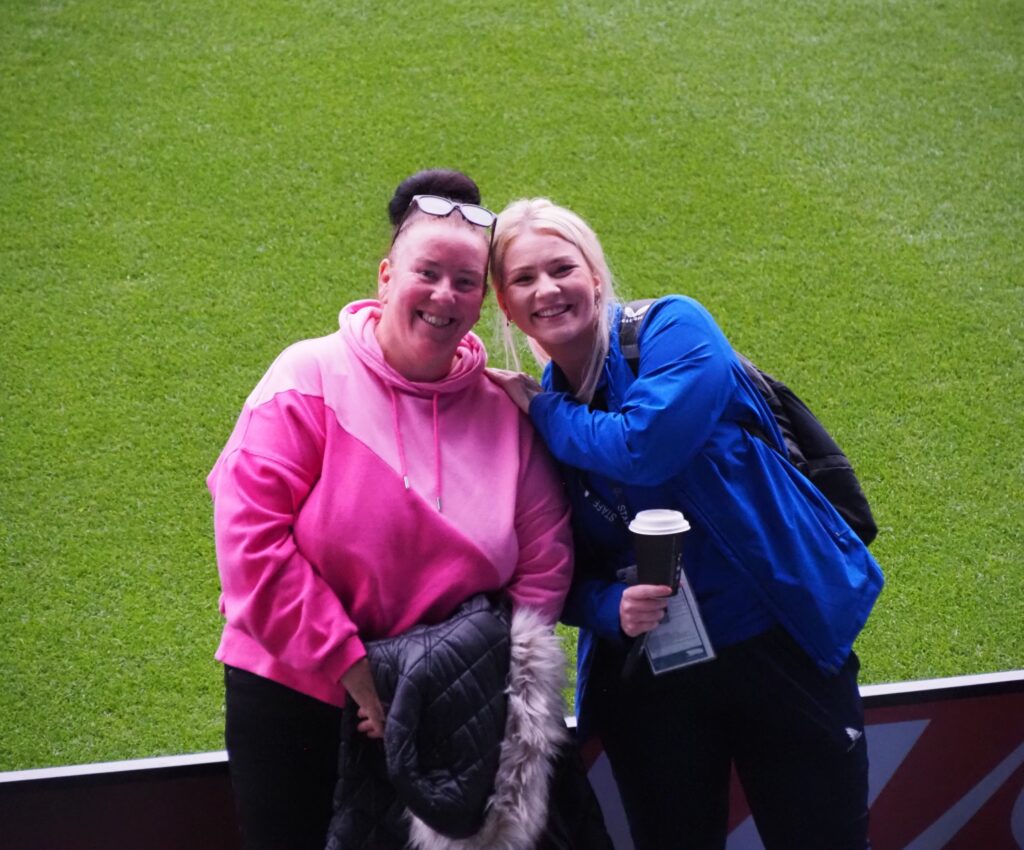

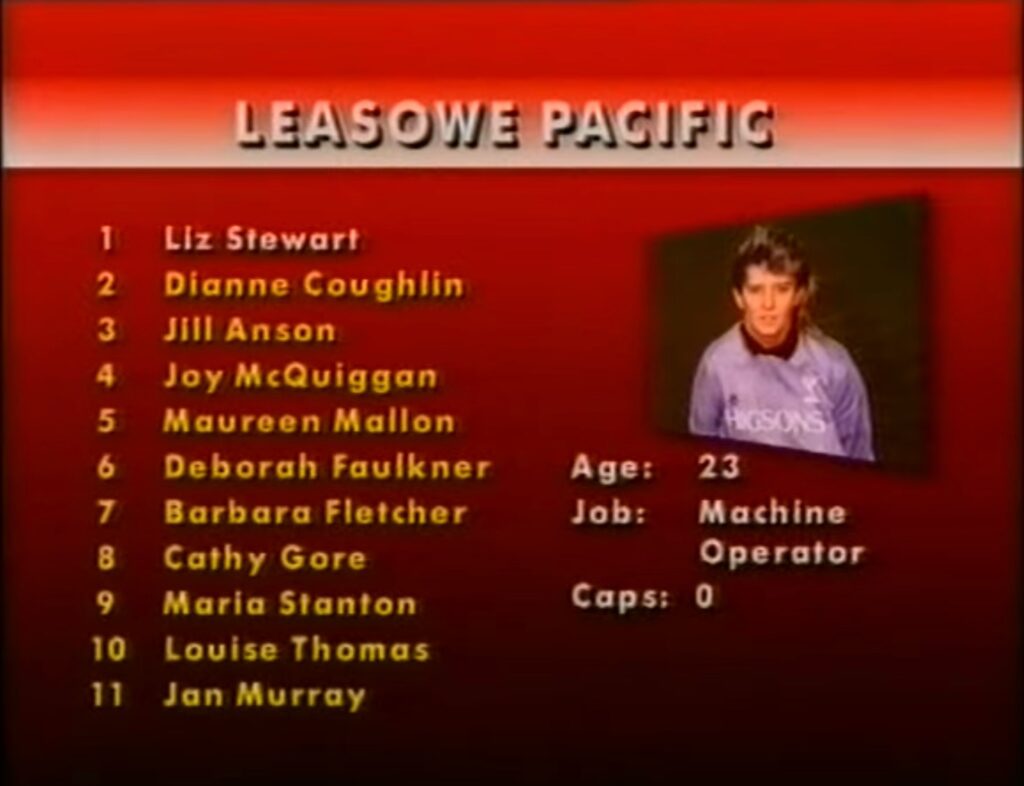

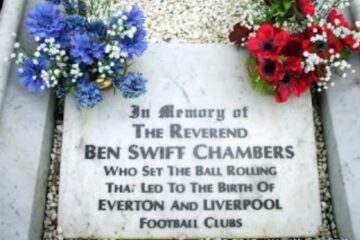
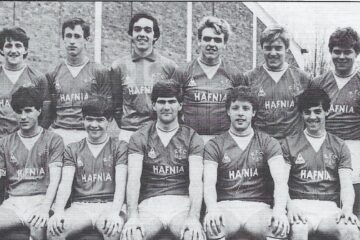
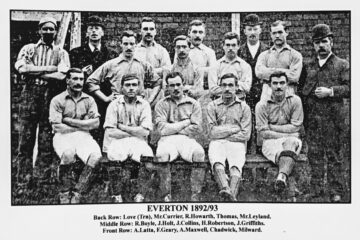
My daughter in law and her twin sister played for Everton ladies for several years for Everton. Their story must be unique. Vicky and Kelly Jones. They would be marvellous ambassadors for the ladies Hall of Fame.